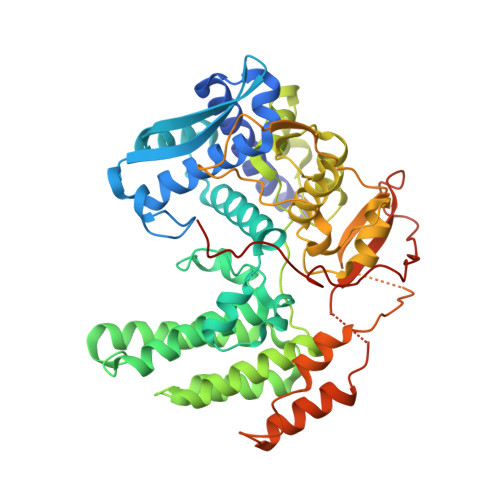The immune-evasive proline-283 substitution in influenza nucleoprotein increases aggregation propensity without altering the native structure.
Yoon, J., Zhang, Y.M., Her, C., Grant, R.A., Ponomarenko, A.I., Ackermann, B.E., Hui, T., Lin, Y.S., Debelouchina, G.T., Shoulders, M.D.(2024) Sci Adv 10: eadl6144-eadl6144
- PubMed: 38640233
- DOI: https://doi.org/10.1126/sciadv.adl6144
- Primary Citation of Related Structures:
8TWP, 8TWR - PubMed Abstract:
Nucleoprotein (NP) is a key structural protein of influenza ribonucleoprotein complexes and is central to viral RNA packing and trafficking. NP also determines the sensitivity of influenza to myxovirus resistance protein 1 (MxA), an innate immunity factor that restricts influenza replication. A few critical MxA-resistant mutations have been identified in NP, including the highly conserved proline-283 substitution. This essential proline-283 substitution impairs influenza growth, a fitness defect that becomes particularly prominent at febrile temperature (39°C) when host chaperones are depleted. Here, we biophysically characterize proline-283 NP and serine-283 NP to test whether the fitness defect is caused by the proline-283 substitution introducing folding defects. We show that the proline-283 substitution changes the folding pathway of NP, making NP more aggregation prone during folding, but does not alter the native structure of the protein. These findings suggest that influenza has evolved to hijack host chaperones to promote the folding of otherwise biophysically incompetent viral proteins that enable innate immune system escape.
- Department of Chemistry, Massachusetts Institute of Technology, Cambridge, MA, USA.
Organizational Affiliation:
















